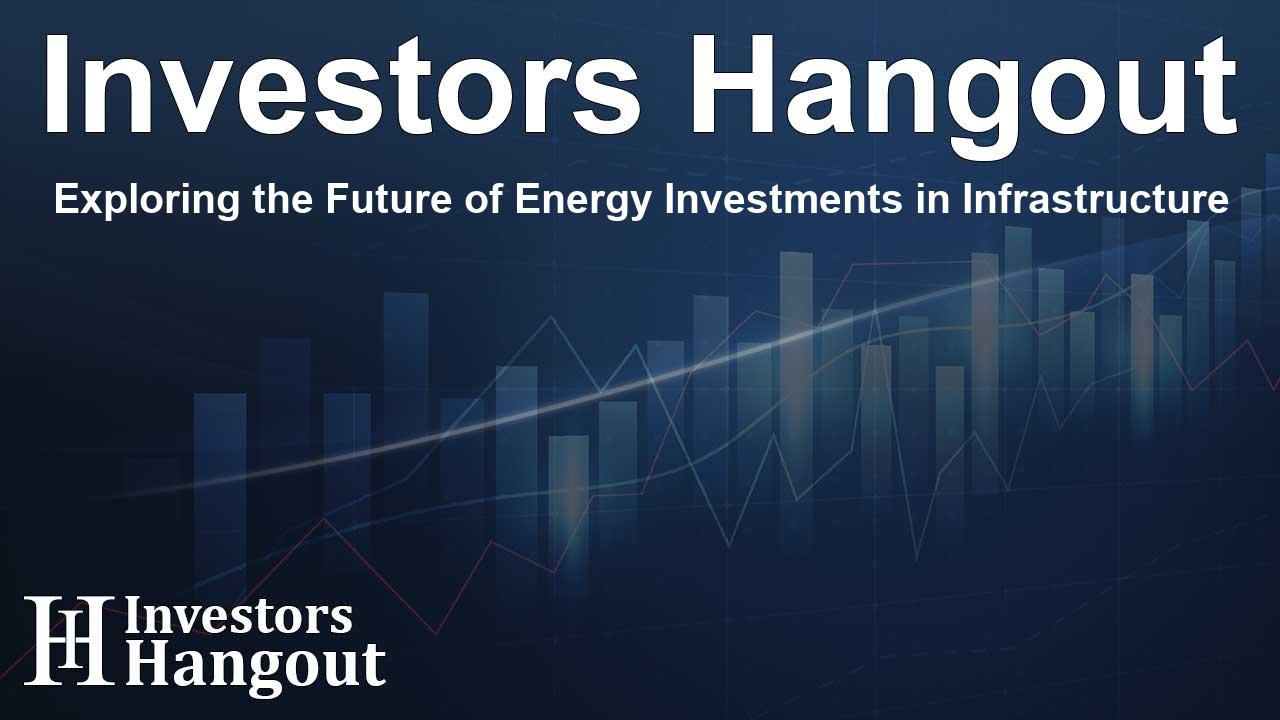Exploring the Future of Energy Investments in Infrastructure

The Growing Demand for Energy
Energy demand is on a steady rise and is projected to increase significantly in the coming decades. With a staggering 15% growth in energy requirements expected by 2050, the reliance on fossil fuels remains a necessary component of this equation. As renewable energy sources such as wind and solar play their part, they alone cannot fulfill the global energy needs, thereby ensuring fossil fuels maintain their importance in energy production for at least the next decade.
Why Invest in Energy Infrastructure?
The outlook for energy infrastructure companies appears promising as they are well-positioned to thrive in this expanding market. Companies like Energy Transfer (NYSE: ET) lead the way in the U.S. energy midstream industry. They boast a vast network of pipelines, processing facilities, and export terminals that deliver stable cash flows supported by extensive long-term contracts and government-regulated setups.
A Strong Financial Foundation
Energy Transfer distributes approximately half of its stable cash flow to its investors, with current yields hovering around 8%. The company skillfully reinvests the remainder into expansion initiatives while maintaining a robust financial position. Several projects are set to come online by 2026, exposing the company to numerous growth opportunities.
Notable Expansion Projects
Among the major initiatives, Energy Transfer is developing projects like Lake Charles LNG and its Blue Marlin oil export terminal. Additionally, it delves into lower-carbon enterprises such as blue ammonia and carbon capture technologies. These enhancements bolster its financial outlook, supporting predictions of a 3% to 5% annual increase in its distribution payments.
Enterprise Products Partners: A Leader in Consistency
Enterprise Products Partners (NYSE: EPD) is recognized for its exceptional track record of consistency, evidenced by a remarkable 26 consecutive years of distribution increases. With a current yield exceeding 7%, this MLP (Master Limited Partnership) operates on a strong financial basis, exhibiting a low payout ratio of approximately 55% of its adjusted cash flow.
Strength in Operations
The strength of Enterprise Products Partners lies in its ability to invest in growth while managing its dividends effectively. With $6.7 billion directed towards major capital projects set to launch over the next few years, it is poised for continued cash flow growth. Their plans include significant investments in oil and natural gas pipelines along with lower-carbon initiatives.
Enbridge: Capitalizing on Growth Opportunities
Enbridge (NYSE: ENB) stands out as a leader in North America’s energy infrastructure, effectively generating reliable cash flows through its pipeline and utility operations. The firm’s commitment to high-yield dividends is supported by its massive backlog of projects valued at 24 billion Canadian dollars, expected to debut through 2028.
A Secure Financial Future
With a recent addition of $700 million worth of projects expected in 2029, Enbridge is strengthening its capacity to enhance earnings by approximately 5% per annum. This substantial potential for growth further solidifies its dividend track record, as the company proudly claims 29 consecutive years of payout increases.
Why Energy Infrastructure Stocks Are a Smart Investment
The growing global energy demand necessitates robust infrastructure, and companies like Energy Transfer, Enterprise Products Partners, and Enbridge are well-equipped to meet this challenge. Each company presents strong backlogs of projects that promise to enhance cash flow and support substantial dividend yields. In turn, this positions these firms as valuable income stocks for investors aiming for sustainable long-term returns.
Frequently Asked Questions
What are energy infrastructure companies?
Energy infrastructure companies focus on the facilities and systems that transport, store, and process energy resources, including pipelines, terminals, and processing plants.
Why should I invest in high-yield dividend stocks?
High-yield dividend stocks provide investors with regular income while also benefiting from potential capital appreciation, making them attractive for both growth and income.
How does Energy Transfer ensure cash flow stability?
Energy Transfer secures stable cash flow through long-term contracts and government-regulated pricing structures that provide predictable revenue streams.
What is the significance of a low payout ratio?
A low payout ratio indicates a company retains a greater portion of its earnings for growth and financial stability while still providing dividends to shareholders.
How can I assess which energy infrastructure company to invest in?
When evaluating energy infrastructure companies, consider factors like financial performance, dividend history, growth potential, and current projects in development.
About The Author
Contact Lucas Young privately here. Or send an email with ATTN: Lucas Young as the subject to contact@investorshangout.com.
About Investors Hangout
Investors Hangout is a leading online stock forum for financial discussion and learning, offering a wide range of free tools and resources. It draws in traders of all levels, who exchange market knowledge, investigate trading tactics, and keep an eye on industry developments in real time. Featuring financial articles, stock message boards, quotes, charts, company profiles, and live news updates. Through cooperative learning and a wealth of informational resources, it helps users from novices creating their first portfolios to experts honing their techniques. Join Investors Hangout today: https://investorshangout.com/
The content of this article is based on factual, publicly available information and does not represent legal, financial, or investment advice. Investors Hangout does not offer financial advice, and the author is not a licensed financial advisor. Consult a qualified advisor before making any financial or investment decisions based on this article. This article should not be considered advice to purchase, sell, or hold any securities or other investments. If any of the material provided here is inaccurate, please contact us for corrections.
